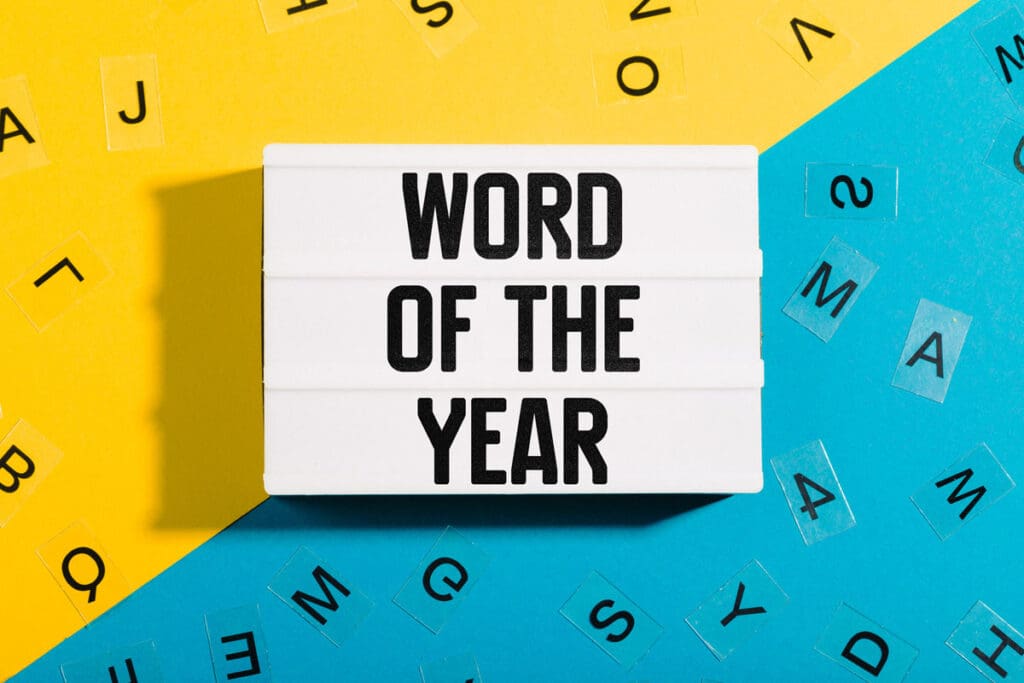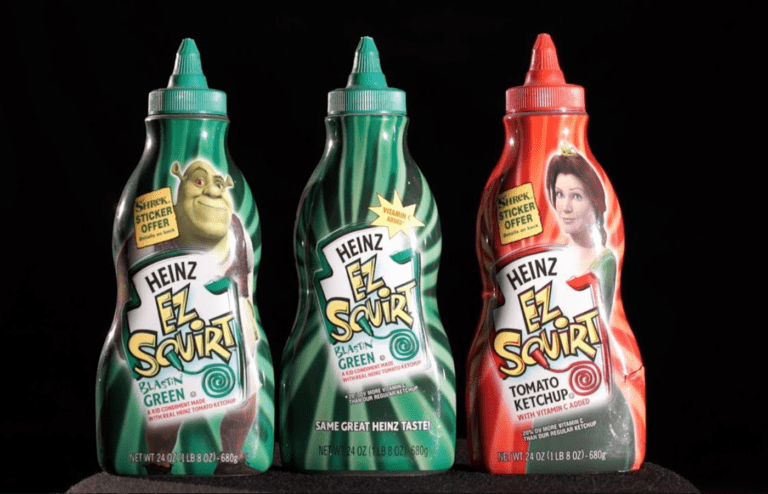
In 2003, the American English language dictionary-publishing company Merriam-Webster first issued a list of the ten most popular words of the year. Merriam-Webster has continued to publish an annual list ever since.
Among the factors Merriam-Webster considers are words that were looked up more frequently than in previous years. Its team also considers notable increases in searches for particular words.
Read More: How to Memorize a Speech for Any Event
Often, the word of the year is a word that has recently entered the English lexicon. It might be a slang word or an older word that has acquired a new meaning.
For example, in 2022, “Gaslighting,” was the word of the year. Today’s meaning came about from a 1938 play by Patrick Hamilton called “Gas Light.” It birthed two film adaptions, the most popular being “Gaslight” (1944) starring Ingrid Bergman and Charles Boyer. The plot centers around a husband who is deceiving his wife while trying to convince her she is losing her sanity.
In modern parlance, “gaslighting,” is defined by the dictionary as: “The act or practice of grossly misleading someone especially for one’s own advantage.”
Merriam-Webster logs at least 100 million pageviews a month on its site. The company chooses its word of the year based solely on its site data.
Runners-Up and Honorable Mentions
Here are several words that made Merriam-Webster’s top ten words of 2023.
10. Deadname
This word saw a huge increase in lookups in March when “Parental Rights” bills were being considered in several states.
Definition (noun): “the name that a transgender person was given at birth and no longer uses upon transitioning.”
Definition (verb): “to speak of or address (someone) by their deadname.”
Example: Many trans people will go to great lengths to prevent people from finding out their deadname.
9. Indict
This legal term saw a 9440% spike in searches on March 30 when former President Donald Trump was charged by a New York City grand jury.
Definition (verb): “to charge with a crime by the finding or presentment of a jury (such as a grand jury) in due form of law; to charge with a fault or offense; criticize, accuse.”
Example: A grand jury is expected to indict him for murder.
8. Elemental
When Pixar released its new film Elemental, it set off a spike of searches for the meaning of the word.
Definition (adjective): “Of, relating to, or being an element; fundamental; simple, uncomplicated; of, relating to, or dealing with the rudiments of something; elementary; forming an integral part; inherent; of, relating to, or resembling a great force of nature.”
Definition (noun): “A supernatural being, spirit; an elementary part or principal.”
Example: We believe elementals do exist.
7. Doppelgänger
Surges of lookups for this word came from several media events. One was a story about two minor-league baseball players who shared similar physical features (including glasses), the same professions, and names. However, a DNA test showed they were unrelated. Two crimes, each involving the attempted murder of someone’s look alike, also focused on the word.
Definition (noun): “Double; alter ego; a person who has the same name as another; a ghostly counterpart (see COUNTERPART sense 3a) of a living person.
Example: She said she had seen his doppelgänger.
6. EGOT
Pronounced “EE-gaht” rather than spelling out its letters, this word was first used in 1984 and was added to Merriam-Webster’s dictionary in 2019. Its popularity in 2023 came as actress and singer Viola Davis won a Grammy for her reading of the audiobook version of her memoir. Davis used the word as a verb, in her acceptance speech by proclaiming: “I just EGOT.” (*Note: Merriam-Webster does not list the word as a verb in its dictionary)
Definition (noun): “The accomplishment of winning an Emmy, Grammy, Oscar, and Tony Award in one’s lifetime.”
Example: Only twenty-four people in history have achieved EGOT status.
5. Dystopian
This word saw its popularity grow around a decade ago with the release of The Hunger Games books and novels. Its popularity saw a resurgence in 2023 due to many factors, including fears that AI might replace or subjugate humans.
Definition (adjective): “of, relating to, or being an imagined world or society in which people lead dehumanized, fearful lives; relating to or characteristic of a dystopia.”
Example: The dystopian novel Nineteen Eighty-Four by George Orwell no longer seems like fiction.
Read More: Want Your Kids to Actually Listen? Try This
4. Coronation
The popularity of this term was driven by the crowning of a new British monarch – Charles III, which saw a spike in May.
Definition (noun): “the act or occasion of crowning; accession to the highest office.”
Example: The coronation of Queen Elizabeth.
3. Deepfake
Advancements in technology, such as audio, graphics, video, and artificial intelligence, have led to the ability to create convincing but false representations of a person’s face, voice, and image.
Definition (noun): “An image or recording that has been convincingly altered and manipulated to misrepresent someone as doing or saying something that was not actually done or said.”
Example: A deepfake of Tom Cruise went viral on the Internet and fooled everyone.
2. Rizz
Here is an example of Internet-driven slang entering the public lexicon. Merriam-Webster added this word to its dictionary in September of 2023.
Definition (noun): “Romantic appeal or charm. To charm or seduce.”
Example: “A bro who has rizz.”
And the 2023 Word of the Year Is…
The winner of Merriam-Webster’s Word of the Year for 2023 is…
1. Authentic
Over the past year, searches for the word “authentic” have been driven by many factors. Narratives about truth. Being true to one’s self. Identity. Culture. Social media. Artificial intelligence. Fake news. What makes something real, and more.
The push for “authenticity” is all around us. Corporations, companies, and brands are being pressured by consumers to be “authentic,” meaning transparent about not only their products but about what they do and who they support. They wish that heads of companies, politicians, ministers, and other leaders would “speak authentically” on social media by running their own accounts, according to the AP.
Consumers are also tired of being “sold” and manipulated by companies, and have turned toward influencers and peers on social media for information they feel is more “authentic.”
The rise in AI has people concerned about what’s real, and has propelled people to search for truth and authenticity.
“We see in 2023 a kind of crisis of authenticity,” said Peter Sokolowski, editor at large for Merriam-Webster. “What we realize is that when we question authenticity, we value it even more.”
Definition (adjective): “Not false or imitation; real, actual; true to one’s own personality, spirit, or character; worthy of acceptance or belief as conforming on fact; conforming to an original so as to reproduce essential features; made or done the same way as an original.”
Example: Celebrities like singers Lainey Wilson, Sam Smith, and especially Taylor Swift all made headlines in 2023 with statements about seeking their “authentic voice” and “authentic self.”








